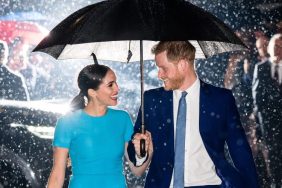Photo: Richard Prince’s Instagram artwork, courtesy of Donald Graham’s Instagram account.
Over the past four decades, Richard Prince built a career on appropriating images and calling them art. In 2014, he took his talents to Instagram where he added a comment to other people’s posts, took a screenshot, blew the image up to 48 x 65 inches, and slapped a $100K price tag on the work, selling it in an exhibition titled “New Portraits” that showed at Gagosian Gallery, New York.
Also: New Photo Book Showcases Instagram’s “It” Girls From a Fresh Perspective
In total, 38 works were shown in the show, each of which was created without permission of the originating artist. The show, which had a reprise at the 2015 edition of Frieze New York, generated tons of buzz, but as the old canard goes, “There’s no such thing as bad press.”
A number of the artists were upset about Prince’s actions, but only photographer Donald Graham has gone the distance, filing a cease-and-desist order against Prince, followed by a lawsuit in 2015, for Prince’s appropriation of his photograph, “Rastafarian Smoking a Joint,” which was posted on another IG user’s account on May 5, 2014.
The New York Times reported that Prince and Larry Gagosian, owner of Gagosian Gallery, asked the court to dismiss the case, arguing that the work was transformative. On July 18, United States District Judge Sidney H. Stein refused, writing: “The primary image in both works is the photograph itself. Prince has not materially altered the composition, presentation, scale, color palette and media originally used by Graham.”
The lawsuit will proceed, potentially setting a precedent for the application of the fair-use doctrine on Instagram—as well as all social and digital media, for that matter.
https://www.instagram.com/p/usyOaLhWML/?taken-by=donaldgrahamphotography
https://www.instagram.com/p/uvXTdThWCV/?taken-by=donaldgrahamphotography
Although ignorance of the law excuses no one, the theft of work and the violation of intellectual property is a common practice on social media. But Prince is no newcomer, nor is he unaware of the laws that protect copyright. Rather, he has made a practice of testing the boundaries and normalizing appropriation ever since his 1975 work, Untitled (Cowboy), became the toast of the New York art world. In this landmark work, Prince rephotographed a Sam Abell photograph originally used for a Marlboro ad—which went on to sell for more than $1 million at Christie’s New York in 2005.
While Randy Kennedy at The New York Times described Prince as “one of the most revered artists of his generation” on January 12 of this year, not everyone would agree.
In December 2008, photographer Patrick Carious brought a suit against Prince, Gagosian Gallery, Larry Gagosian, and Rizzoli International Publications in Federal district court, stating that Prince wrongfully appropriated 35 photographs made by Cariou, 28 of which were taken from his cult-classic monograph Yes Rasta (powerHouse Books, 2000).
In March 2011, US District Judge Deborah A. Batts ruled in favor of Cariou, citing the 1992 case Rogers v. Koons. In 2015, the US Court of Appeals for the Second Circuit reversed the ruling, determining 25 of the works were transformative. The case was settled in 2014—the same year Prince took to Instagram in search of new material.
On July 19, Prince responded to the lawsuit via tweet from his account @RichardPrince4: “Phony fraud photographers keep mooching me. Why? I changed the game. &their wizardry professorial boredom keeps coughing up a vick’sVAPOrub.”
He later deleted the tweet.
Miss Rosen is a journalist covering art, photography, culture, and books. Her byline has appeared in L’Uomo Vogue, Vogue Online, The Undefeated, Dazed Digital, Aperture Online, and Feature Shoot. Follow her on Twitter @Miss_Rosen.






